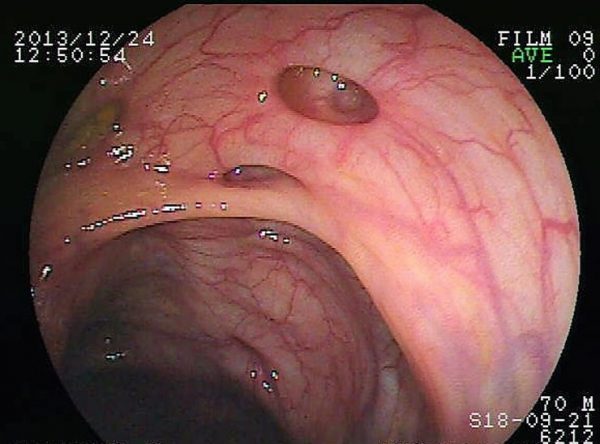
Inflammatory bowel disease
Inflammatory bowel disease (IBD) is a term for two conditions – Crohn’s disease and ulcerative colitis both are chronic inflammation of the gastrointestinal (GI) tract. IBD often mistaken as IBS – Irritable bowel syndrome.
Symptoms of Inflammatory bowel disease are:
- Persistent diarrhea
- Abdominal pain
- Rectal bleeding/bloody stools
- Weight loss
- Fatigue
To diagnose IBD endoscopy is used for Crohn’s disease and colonoscopy for ulcerative colitis. With these imaging studies, MRI, computed tomography or CT are used. Doctors will check stool samples to check any possible infection or run blood test to confirm their diagnosis.
Crohn’s Disease: Can affect any part of the GI tract from mouth to anus). Most often it affects the portion of the small intestine before the large intestine/colon.
- Damaged areas appear in patches that are next to areas of healthy tissue
- Inflammation may reach through the multiple layers of the walls of the GI tract
Ulcerative Colitis: Occurs in the large intestine (colon) and the rectum
- Damaged areas are continuous (not patchy) – usually starting at the rectum and spreading further into the colon
- Inflammation is present only in the innermost layer of the lining of the colon
How is IBD treated? Different types of medications including immunomodulators, corticosteroids, aminosalicylates are used. To prevent infections vaccinations are recommended. Severe IBD required to remove damaged portion of GI. Now a days surgery is uncommon due to advances in treatments. Both Crohn’s disease and ulcerative colitis require different types of surgeries.
How to manage IBD?
Cause of IBD is still not totally understood and it cannot be prevented. However, IBD symptoms can be managed to prevent complications.
- Stop smoking. Smoking worsens treatment outcomes and increases flares-up among patients with Crohn’s disease.
- Get recommended vaccinations. IBD patients treated with certain medications have a higher risk for infection.
- Ask your doctor if you should be screened for colorectal cancer. Patients with IBD may need to start screening for colorectal cancer before age 50.
- If you are a woman with IBD, talk to your doctor about how to prevent cervical cancer. Patients with IBD are at higher risk of cervical cancer.
- Ask your doctor if you need a bone density test. Certain medications used to treat IBD may increase your risk for osteoporosis.
Diet & Nutrition: Diet and nutrition helps to prevent IBD. But diet or food does not initiate IBD.
- Eat smaller meals at more frequent intervals. Eat five small meals a day, every three or four hours, rather than the traditional three large meals a day.
- Reduce the amount of greasy or fried foods. High-fat foods may cause diarrhea and gas if fat absorption is incomplete.
- Watch dairy intake. Persons who are lactose intolerant or who are experiencing IBD or IBS may need to limit the amount of milk or milk products they consume.
- Restrict the intake of certain high-fiber foods. If there is narrowing of the bowel, these foods may cause cramping. High-fiber foods also cause contractions once they enter the large intestine. Because they are not completely digested by the small intestine, these foods may also cause diarrhea.
- Avoid problem (trigger) foods. Eliminate any foods that make symptoms worse. These may include “gassy” food (such as beans, cabbage and broccoli), spicy food, popcorn and alcohol, as well as foods and drinks that contain caffeine, such as chocolate and soda.
- Foods to try: Bananas, applesauce, canned varieties of fruit, White bread, crackers made with white flour, plain cereals, White rice, refined pastas, Potatoes without the skin, Cheese (if you’re not lactose intolerant). Smooth peanut butter, Bland soft foods, Cooked vegetables, Canola and olive oils, Low-sugar sports drinks and Crystal Light diluted with water
- Foods to avoid: Fresh fruit (unless blended or juiced), Prunes, raisins or dried fruit, Uncooked vegetables and raw foods, High-fiber foods (such as fiber-rich breads, cereals, nuts and leafy greens), High-sugar foods, Skins, seeds, popcorn, High-fat foods, Spicy foods, Beans, Some dairy products, Large food portions, Caffeine in coffee, tea and other beverages, Ice-cold liquids (even water)
Managing stress helps to reduce IBD symptoms. Getting enough sleep, nurturing body with healthy tips, enough physical activities prevents prolongation and pain caused by IBD.
For more on Inflammatory Bowel Syndrome please visit:
- www.cdc.gov
- http://www.crohnscolitisfoundation.org
Image credit: https://commons.wikimedia.org/wiki/File:Colon_diverticulum.jpg
Attribution:melvil / CC BY-SA (https://creativecommons.org/licenses/by-sa/4.0)
Author: HealthyLife | Posted on: May 18, 2018






















Write a comment